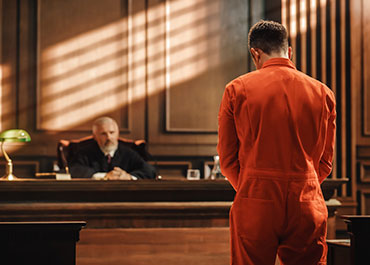
Prior convictions in Colorado can play a major role in shaping the outcome of a new criminal case. Even relatively minor offenses from the past can significantly affect everything from sentencing to bail to plea negotiations. In this article, we’ll explore…
- What it means to be a habitual offender under Colorado law.
- How past convictions can impact new charges that you face.
- How an experienced defense attorney can help limit the damage done by past convictions.
What Does It Mean To Be A Habitual Offender Under Colorado Criminal Law, And How Can It Affect My Case?
Under Colorado law, being classified as a habitual offender can drastically increase sentencing. If you have prior violent or drug-related convictions, the state can impose significantly harsher penalties, much like in California. These enhanced sentencing laws are meant to target repeat offenders, but they can also result in disproportionate punishment for people who may have turned their lives around since their prior offenses.
How Do Prior Misdemeanor Convictions Impact New Felony Charges In Colorado Courts?
Even minor prior convictions can make a big difference in how your case is handled. In Colorado, having a prior record can make it much harder for you to qualify for a deferred judgment, a program that allows for the eventual dismissal of charges once you successfully complete probation.
Without priors, deferred judgments are often an option. However, once a prior conviction exists, judges and prosecutors become more reluctant to offer these second chances. As a result, even a minor past offense can have serious consequences in future cases.
Can Past Convictions, Including Out-Of-State Charges, Affect Bail Decisions In Colorado?
Past convictions count, regardless of which state they occurred in. If it appears on your criminal record, it can factor into bail decisions in Colorado. When judges consider bail, they typically evaluate two key questions:
- Is the defendant a flight risk?
- Are they a danger to the community?
A prior conviction might not indicate flight risk, especially if you showed up for all court appearances in a previous case. However, it could suggest a danger to the community, especially if it was a violent offense or shows a pattern of disregarding the law. That can lead to higher bail or, in some cases, a denial of bail altogether.
How Can A Criminal Defense Attorney Reduce The Impact Of Past Convictions On Current Charges?
A skilled defense attorney can make a real difference by framing the narrative. If the past offense is unrelated to the current charge, that’s already helpful, but it’s just the start. An experienced lawyer will know how to tell your story in a compelling way, helping judges and prosecutors see the full picture. It’s not just about legal arguments. It’s about presenting you as a human being, not just a rap sheet.
How Can A Lawyer Help Limit The Damage Of My Past During Trial?
Before the trial even begins, your attorney can file pretrial motions to keep certain information, like prior convictions, out of the courtroom. These motions are critical to protecting your rights. A judge can order that certain prior acts not be introduced as evidence if they’re not directly relevant to the current charge. If your lawyer doesn’t make those arguments early, damaging information might be used against you unnecessarily during trial.
How Do Prosecutors Tend To Treat Clients With Prior Convictions Differently During Negotiations?
Prosecutors often show more leniency to clients with clean records, especially if they’re older. A 22-year-old first-time offender is often viewed very differently than someone in their 40s or 50s with no prior history.
But when a person has prior convictions, particularly violent offenses or crimes similar to the current charge, prosecutors can be far less flexible. They may push for harsher plea deals or be unwilling to consider alternatives like treatment or diversion programs.
Unfortunately, some defendants end up accepting plea deals too quickly because they seem like the best short-term option. But without a long-term view, those choices can backfire, especially for those dealing with addiction or other ongoing challenges. A deal might appear favorable at the time, but if the client later violates probation, the consequences can be severe and permanent.
That’s why it’s critical to have an attorney who sees the big picture, someone who isn’t just aiming for quick resolutions but who truly understands how decisions today will impact your life tomorrow.
Still Have Questions? Ready To Get Started?
For more information on prior convictions in Colorado, an initial consultation is your next best step. Get the information and legal answers you are seeking by calling (310) 902-7837 today.
